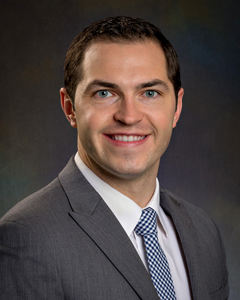Ureteropelvic Junction Obstruction
Ureteropelvic junction obstruction (UPJ), is a blockage in the area that joins the renal pelvis to the ureters, which are responsible for sending urine into the bladder. A UPJ obstruction causes the kidneys to produce urine at a rate that exceeds the amount that is able to drain effectively causing urine to accumulate in the kidney. Left untreated, the build-up of urine in the kidneys may lead to infection, kidney stones, damage to the kidneys or kidney failure.
Causes of UPJ
While ureteropelvic junction obstruction is most commonly congenital, it may also occur in adults as a result of infection, kidney stones, or scar tissue from a previous surgery.
Symptoms of UPJ
Ureteropelvic junction obstruction does not always present symptoms. However, in some cases, affected patients may experience:
- Blood in the urine
- Kidney infection
- Urinary tract infection
- Abdominal mass
- Back or flank pain
Some patients may also experience fever or vomiting as a result of UPJ.
Diagnosis of UPJ
Congenital ureteropelvic junction obstruction is often diagnosed in the womb during a routine ultrasound examination. After birth, this condition may be diagnosed through the following tests:
- Voiding cystourethrogram
- Intravenous pyelogram (IVP)
- CT scan
A nuclear scan of the kidneys may also be performed to confirm a diagnosis of UPJ.
Treatment of UPJ
In cases where UPJ obstruction is diagnosed in the womb, infants may be monitored after birth as the poor drainage function may be temporary and may improve. Monitoring may be practiced until about the age of 18 months old. If no improvement is shown after that time, treatment options may be considered.
Surgery may be necessary to correct ureteropelvic junction obstruction and improve urinary flow. There are several surgical treatment options that may be used to treat UPJ.
Pyeloplasty
Through a surgical procedure, the UPJ is removed and the ureter is reattached to the pelvis and kidney creating a wider junction between them. This allows proper drainage of the urine produced by the kidneys. Infants typically undergo open surgery, while adults and older children may be eligible for minimally-invasive procedures like laparoscopic surgery, that allow for quicker recovery times.
Wire Insertion
A wire is surgically inserted through the ureter and used to cut the UPJ from the inside. A special ureteral drain is then left in place for several weeks and then removed. The UPJ heals and widens in most patients. This treatment may need to be repeated and success rates are lower than those of open surgery. The advantages of this procedure are less pain and nausea.
After receiving proper care, most patients recover well from surgery to treat ureteropelvic junction obstruction. Some patients may have pain for a few days following surgery and in some cases, a drainage tube may be left in place to help the kidney drain while it heals. Most patients experience minimal to no complications after treatment.










